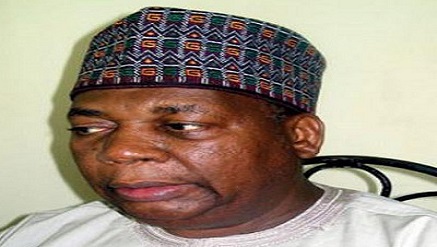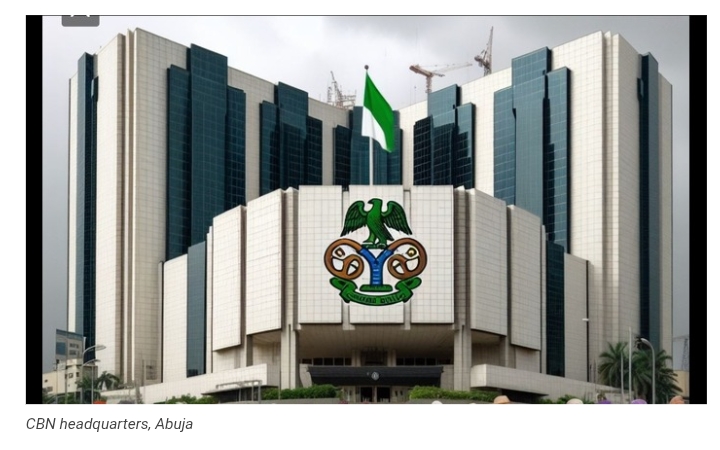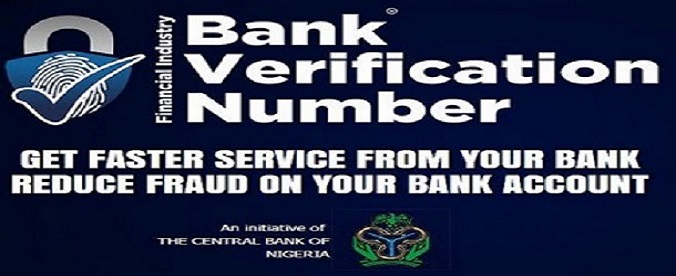E-Financial
NDIC Moves to Improve Mobile Banking Services

Umaru Ibrahim, managing director, Nigeria Deposit Insurance Corporation (NDIC) has called on stakeholders in the mobile money business to seek ways of extending the service to a larger proportion of the population.
Ibrahim stated this at a roundtable discussion on mobile money services held in Lagos, said that there are over 100 million mobile phone lines in the country.
He said: “According to Enhancing Financial Innovation and Access (EFiNA) survey, the rural population is 71 per cent, while 76.2 per cent of the population remains unbanked. Mobile phone ownership is 55.6 per cent in the rural areas.”
He explained that effective rendering of mobile banking financial services can be a key mechanism in achieving the objective of National Financial Inclusion Strategy (NFIS) based on the huge success recorded by Kenya, Uganda and South Africa in enhancing financial inclusion through mobile financial services.
Ibrahim said mobile banking subscribers will soon get deposit insurance coverage, with each subscriber guaranteed up to N200,000, or N500,000 as applicable to Microfinance Banks/Primary Mortgage Banks and Deposit Money Banks(DMBs) respectively, in the event of bank failure.
He explained that if a bank fails, the insured mobile account can be transferred to another sound bank, to further engender public confidence in the system and promote financial stability.
According to him, the framework for extending deposit insurance to individual customers of mobile payment services is being finalised.
He explained that mobile payment is operated under financial regulation and performed from, or through a mobile device.
“It is a convenient, secure and affordable way to send money to friends and family, using mobile phones and/or other electronic devices like internet facilities,” he disclosed.
Ibrahim stressed that with mobile money, all economic agents can transfer funds to any recipient in the country and outside the country, as well as pay for their goods and services, using their mobile phones and other electronic devices.
“Mobile phones, in particular, are an attractive way to promote financial inclusion given their extensive use by the population and global reach. Mobile phones can serve as a virtual bank card, point of sale terminal (PoS), Automated Teller Machine (ATMs) or internet banking terminal. The confluence of banking technologies with mobile telephony leads to wider penetration and holds new promise of financial inclusion for the minority of the unbanked,” he emphasised.
He said the Central Bank of Nigeria (CBN) issued a regulatory framework for the operation of mobile payments services in Nigeria in 2009, adding that the apex bank has also granted licences to 21 mobile money operators.
E-Financial
KPMG Identifies ‘Flaws, Inconsistencies, and Omission’ in New Tax Law

KPMG Nigeria has identified what’s described as “errors, inconsistencies, gaps and omissions” in Nigeria’s tax laws that came into force at the beginning of this year.

The professional services company warns that these issues could undermine the attainment of the tax reforms’ stated objectives if left unaddressed.
The reforms, anchored on the Nigeria Tax Act (NTA) and the Nigeria Tax Administration Act (NTAA), alongside the Nigeria Revenue Service (NRS) Establishment Act and the Joint Revenue Board (JRB) Establishment Act, are aimed at improving revenue generation, simplifying tax administration, and enhancing competitiveness.
Authorities have repeatedly described the overhaul as critical to strengthening Nigeria’s weak tax-to-GDP ratio and adapting the tax system to changing economic realities.
Capital gains, inflation, and market behaviour
One of the most far-reaching concerns relates to the computation of chargeable gains under Sections 39 and 40 of the Nigeria Tax Act, which require capital gains to be calculated as the difference between sale proceeds and the tax-written-down value of assets, without any adjustment for inflation, analysis by KPMG revealed.
This approach has attracted attention largely because of Nigeria’s inflation environment. Headline inflation has remained in double digits for eight consecutive years, averaging above 18 percent between 2022 and 2025, according to data from the National Bureau of Statistics. Over the same period, asset price movements have been heavily influenced by currency depreciation and general price increases.
Actual market behaviour shows a mixed reaction to tax policy expectations, despite a strong full‑year rally, with the NGX All‑Share Index up more than 50 percent and market capitalisation near N99.4 trillion, the equities market saw significant sell‑offs in late 2025, including a N6.5 trillion drop in market value in November amid uncertainty over the new capital gains tax rules, underscoring investor sensitivity to tax policy shifts.
In its review of the law, KPMG Nigeria noted that taxing nominal gains in a high-inflation environment could result in taxpayers being assessed on inflationary gains rather than real economic value. The firm recommended the introduction of a cost indexation allowance to adjust asset values for inflation when computing chargeable gains.
According to the analysis, such an adjustment would reduce distortions in effective tax rates while still allowing the government to generate additional revenue from genuine capital appreciation.
Indirect transfer rules and foreign investment risks
Another provision drawing scrutiny is Section 47 of the Nigeria Tax Act, which subjects gains from indirect transfers of shares or assets by non-residents to Nigerian tax where such transfers result in changes in ownership of Nigerian companies or assets located in Nigeria.
The provision is being introduced amid weak foreign investment inflows. Data from the United Nations Conference on Trade and Development shows that foreign direct investment into Nigeria remains below pre-2019 levels, reflecting broader investor caution.
While similar indirect transfer rules exist in other jurisdictions, analysts note that such regimes are typically supported by detailed guidance and clear thresholds to reduce uncertainty.
KPMG’s analysis recommended that Nigerian tax authorities issue clear administrative guidance defining the scope, thresholds, and reporting obligations associated with indirect transfers. The firm noted that clarity would reduce the risk of disputes, improve compliance, and mitigate potential negative effects on foreign investment flows.
FX deductions clash with economic realities
Section 24 of the Nigeria Tax Act limits businesses from deducting foreign-currency expenses beyond their naira equivalent at the official CBN rate.
In practice, this means a company importing goods, paying foreign software subscriptions, or settling overseas vendor invoices cannot claim as tax-deductible any amount they spent above the official exchange rate.
For many companies, this is a real problem. Access to official foreign exchange is limited, forcing businesses to pay higher rates on the parallel market. Under the law, the extra cost becomes non-deductible, effectively increasing taxable profits and raising their tax bills.
KPMG warns that while the rule aims to curb speculative foreign exchange activity, it fails to account for supply shortages. The firm recommends that deductibility should reflect the actual cost incurred, provided proper documentation, so businesses aren’t penalized for circumstances beyond their control.
VAT-linked expense disallowances
Section 21(p) of the Nigeria Tax Act disallows deductions for expenses on which value-added tax has not been charged, even where such expenses were incurred wholly for business purposes.
This intersects with Nigeria’s VAT compliance challenges. The informal sector accounts for a significant share of economic activity, and VAT compliance gaps remain wide, according to assessments by tax authorities and development institutions.
Analysts note that the provision effectively transfers part of the VAT enforcement burden to compliant taxpayers, who may be penalised for supplier non-compliance.
KPMG recommended that Section 21(p) be deleted or substantially modified, arguing that deductibility should depend solely on whether an expense was wholly, exclusively, and necessarily incurred for business purposes. The firm noted that VAT compliance should instead be enforced directly through audits and penalties on defaulting suppliers.
Non-resident taxation and compliance ambiguity
Uncertainty also surrounds the compliance obligations of non-resident companies. While Section 17 of the Nigeria Tax Act provides that withholding tax constitutes final tax for certain non-resident payments where there is no permanent establishment or significant economic presence, the Nigeria Tax Administration Act does not clearly exempt such entities from registration or filing requirements.
Nigeria has signed over a dozen double taxation treaties (DTTs), including the UK, South Africa, Canada, and France, which align with the principle that final WHT extinguishes further tax obligations in the absence of a taxable presence. Experts say harmonizing the NTA and NTAA with these treaties is critical to avoid conflicts and deter foreign investors.
KPMG recommended that the relevant provisions of the Nigeria Tax Act and the Nigeria Tax Administration Act be harmonised, with explicit exemptions for non-resident companies whose Nigerian tax obligations have been fully discharged through withholding tax. According to the firm, such alignment would reduce compliance friction and improve Nigeria’s attractiveness for cross-border transactions.
As Nigeria enacts its most comprehensive tax overhaul in decades, the path to success will depend on clarity, alignment with international best practices, and swift adoption of recommended amendments. Without these measures, businesses may face higher costs, non-residents could be discouraged from investing, and capital markets may remain volatile. For policymakers, the challenge is not just raising revenue but ensuring that the reforms strengthen competitiveness and sustainable economic growth.
E-Financial
19 Nigerian Banks Meet CBN Recapitalization Targets Ahead of March Deadline

Nineteen Nigerian banks have fulfilled the Central Bank of Nigeria’s (CBN) recapitalization requirements as of January 6, 2026, six weeks before the March 31 deadline, according to data from The Cable Index.

CBN
Access Bank, Fidelity Bank, First Bank, GTBank (GTCO), UBA, and Zenith Bank—holders of international licenses—lead compliance among six major players.
National and regional licensees Citibank Nigeria, Ecobank Nigeria, Globus Bank, Stanbic IBTC, Sterling Bank, Wema Bank, PremiumTrust Bank, and Providus Bank have also hit the benchmarks.
Two non-interest banks, Jaiz and Lotus, alongside merchant banks FSDH, Greenwich, and Nova, round out the compliant group, meeting thresholds of N10-N20 billion for non-interest, N50 billion for merchants, N200 billion for nationals, and N500 billion for international banks as set in March 2024.
Approximately 14 banks remain non-compliant, underscoring urgency ahead of the deadline despite broad progress.
E-Financial
BVN Enrollment Up 6.87 Percent to 67.84m in 2025 – NIBSS

Bank Verification Number (BVN) enrollments in the country rose by 6.87 per cent , or 4.36 million, to 67.84 million as at the end of December 2025 from 63.48 million in the corresponding period of the preceding year, according to latest data released by the Nigeria Interbank Settlement System (NIBSS).

This means that a total number of 4.36 million BVN enrolments were recorded between the end of December 2024 and the end of last year.
The BVN scheme was launched on February 14, 2014 by the Central Bank of Nigeria (CBN) in collaboration with the Bankers’ Committee, NIBSS and the German firm, Dermalog, with the aim of capturing biometrics of all bank customers and giving each bank customer a unique 11-digit identity number (BVN) that can be verified across the Nigerian banking industry.
Lamido Sanusi, governor of the CBN, at the time, said at the event that the BVN scheme would enable the apex bank to significantly reduce incidents of fraud and money laundering in the banking industry and also help accelerate financial inclusion by opening up opportunities for credit to millions of Nigerians who do not have a standard means of identification.
In October 2017, the CBN released a regulatory framework for BVN operations and Watchlist for the financial system. It stated that the Watchlist comprises a database of bank customers identified by their BVNs, who have been involved in confirmed fraudulent activities in the Nigerian banking industry.
An analysis of the latest NIBSS data shows that BVN enrollment maintained an upward trend in the last five years, rising from 51.90 million in 2021 to 56.90 million and 60.12 million in 2022 and 2023 respectively, before hitting 63.48 million in 2024 and 67.84 in 2025.
Analysts attribute the rise in BVN enrolments in recent years to policy measures introduced by the CBN as part of its efforts to tackle fraud.
For instance, on December 1, 2023, the apex bank issued a circular directing Deposit money banks (DMBs) Non-interest banks, Payment Service Banks, other financial institutions and mobile operators, to ensure that all funded bank accounts or wallets, without BVN or National Identification Number (NIN) are placed on “Post No Debit or Credit,” by April 1, 2024.

 E-Financial2 days ago
E-Financial2 days ago19 Nigerian Banks Meet CBN Recapitalization Targets Ahead of March Deadline

 E-Financial2 days ago
E-Financial2 days agoKPMG Identifies ‘Flaws, Inconsistencies, and Omission’ in New Tax Law

 General News2 days ago
General News2 days agoBill Gates Pays Ex-Wife $8Bn Charity Payout in Divorce Settlement

 General News2 days ago
General News2 days agoFG to Empower Artisans for Global Value

 Telecom2 days ago
Telecom2 days agoNigeria, Egypt to Lead Africa’s Data Center Boom

 General News2 days ago
General News2 days agoFG Introduces Reusable Textbooks, Uniform School Calendar to Cut Education Costs

 Telecom2 days ago
Telecom2 days agoCourt Dismisses N1Bn Suit against MTN, Awards N3m Costs

 General News2 days ago
General News2 days agoCBN Projects Petrol to Hover around N905/Litre this Year























